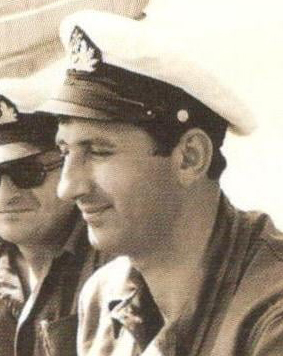Today is marked 33 years since the death of Krsto Đurović, Rear Admiral of the Yugoslav People’s Army (JNA), who is remembered for his statement that as long as he lived, not a single shell would fall on Dubrovnik. Đurović died under unclear circumstances in a helicopter crash on 5 October 1991, in the early days of the JNA attack on the Dubrovnik region of the Republic of Croatia.
Human Rights Action (HRA), Antifascists of Cetinje, and Centre for Civic Education (CCE) yesterday submitted an initiative to the Old Royal Capital of Cetinje to name a street in the city after Rear Admiral Krsto Đurović, who was born in Cetinje.
Đurović deserves at least a street named after him, as he is remembered in history as an honourable officer who tried to prevent the senseless aggression against the Republic of Croatia. This is the same aggression that led people at a rally organized by the Liberal Alliance in Cetinje to sing “From Lovćen, a fairy calls out, forgive us, Dubrovnik!” and for which, much later, Montenegrin officials apologized to their Croatian counterparts.
HRA, Antifascists of Cetinje and CCE believe that, according to the Law on Memorials, Rear Admiral Krsto Đurović meets the criteria for being considered a distinguished figure. Đurović exemplified bravery and humanity of historical significance, and preserving the memory of him and his opposition to the war would be of immense importance for Montenegro’s state, societal and cultural development.
By naming a street after Krsto Đurović, Cetinje would contribute to preserving the memory of its anti-war movement, as well as the values that characterize our civic state, and it would remind future generations of the obligation to oppose any military aggression.
It is important to recall that during those difficult years, Cetinje was a symbol of resistance to the war in the former Yugoslavia. The city rose against war and violence, as evidenced by two famous anti-war rallies held in Tito’s Square (now Dvorski Square) – on 31 July 1991, and 1 February 1992. Naming a street after Rear Admiral Đurović would also serve as a reminder of the spirit of freedom and justice that Cetinje displayed when it was most needed.
Unfortunately, today’s youth do not have the opportunity to learn about the people who bravely opposed the war in the 1990s and fought for peace, as this is not part of the educational system. Hense, establishing memorials, such as naming streets, is one way to preserve the memory of their contributions and teach new generations to stand for peace and justice.
Tea Gorjanc Prelević, Executive Director of the NGO Human Rights Action (HRA)
Filip Kuzman, Executive Director of the NGO Antifascists of Cetinje
Daliborka Uljarević, Executive Director of the Centre for Civic Education (CCE)

